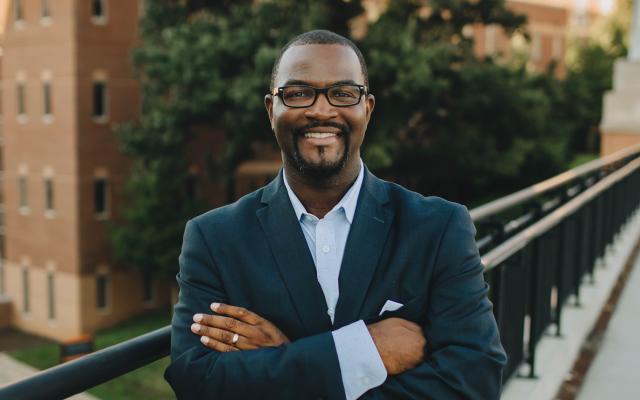
This talk examines the activism of banker-lawyer John Hervey Wheeler during the modern civil rights movement. As president of Mechanics and Farmers Bank (M&F Bank), located on Durham's "Black Wall Street," Wheeler became North Carolina’s most influential black power broker and among the top civil rights figures in the South. While direct action represented a shift away from strict reliance on legal tactics, Wheeler recognized that ongoing civil disobedience meant that he was in a much better position than ever before to fulfill the ideals of New South prosperity through increased involvement in reform and policymaking at the local, state, and national levels.
Watch the webinar on YouTube [00:58:07]
Watch more Keller videos on YouTube
About the Speaker
Dr. Brandon K. Winford is an associate professor of history at the University of Tennessee, Knoxville. He is a historian of late nineteenth and twentieth century United States and African American history with areas of specialization in civil rights and Black business history. Winford is the author of John Hervey Wheeler, Black Banking, and the Economic Struggle for Civil Rights (University Press of Kentucky, 2020). He is from Mooresville, North Carolina and received his B.A. and M.A. in history from North Carolina Central University in Durham, North Carolina, as well as his Ph.D. in history from the University of North Carolina at Chapel Hill. Professor Winford is the co-founder of the Fleming-Morrow Endowment in African American History, named in honor of two pioneer Black professors in the UTK College of Arts and Sciences.
Winford is the co-winner of the 2020 Lillian Smith Book Award, presented by the Southern Regional Council, University of Georgia Libraries, Dekalb County Public Library, Georgia Center for the Book, and Piedmont College. His book was a finalist for the 2021 Hagley Prize in Business History, sponsored jointly by the Hagley Museum and Library and the Business History Conference. He is the recipient of the 2019 Junior Diversity Leadership Award from the UTK College of Arts and Sciences and the 2020 Hardy Liston, Jr. Symbol of Hope Award. He is currently working on a book manuscript about the history of Black banking in the American South since 1865, which considers Black banks as critical arteries wherever they existed in Black communities across the region. These institutions were in short supply relatively speaking but proved critical to thriving local economies. Moreover, they were valuable resources in facilitating Black consumerism, entrepreneurship, homeownership, and institution building so Black people could participate in areas of the economy previously closed off to them.
John Hervey Wheeler, Black Banking, and the Economic Struggle for Civil Rights combines Black business and civil rights history to explain how economic concerns shaped the goals and objectives of the Black freedom struggle. Winford focuses on the Black business activism of banker and civil rights lawyer John Hervey Wheeler (1908-1978). Wheeler graduated from Morehouse College in 1929, and then moved to Durham, North Carolina where he landed a job as a bank teller with the Mechanics and Farmers Bank (M&F Bank), one of the nation's largest black-owned banks. In 1952, he became president of M&F Bank, a sister institution to the North Carolina Mutual Life Insurance Company (N.C. Mutual). Between the 1950s and 1960s, Wheeler was the Tar Heel State's most influential Black power broker and among the top civil rights figures in the South. Winford's new book examines one of the leading Black business people in the United States in one of the country's most well known "Black Wall Streets."
This is the second lecture of the 2022-2023 academic year in the Keller Center's ongoing series History and Legacy of Black Entrepreneurship in the United States.
Registrants will receive the link to the event content in an order confirmation email from Eventbrite, and in a reminder email before the event starts.
Who can attend?
Open to the public, the campus community, students, graduate students, undergraduates, postdocs, research scholars, faculty, staff, and alumni.
Contributions to and/or sponsorship of any event does not constitute departmental or institutional endorsement of the specific program, speakers or views presented.